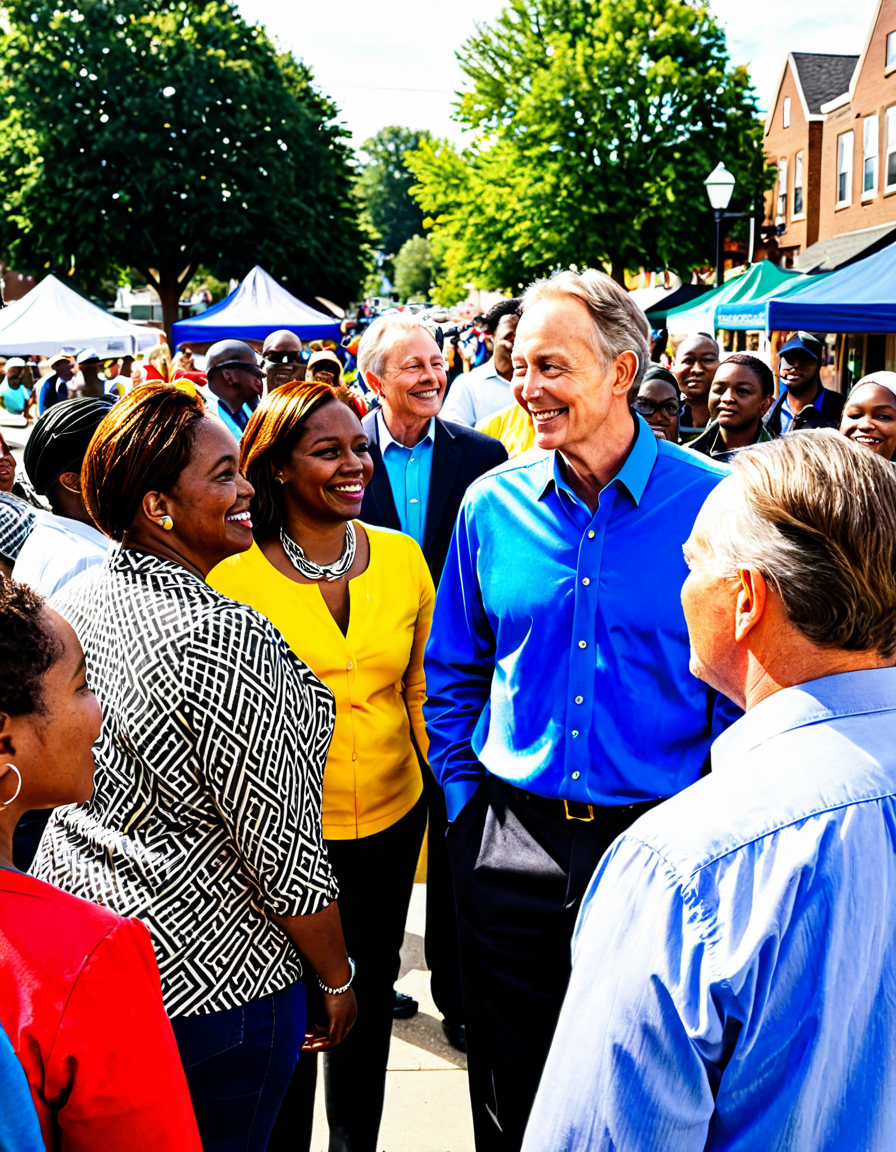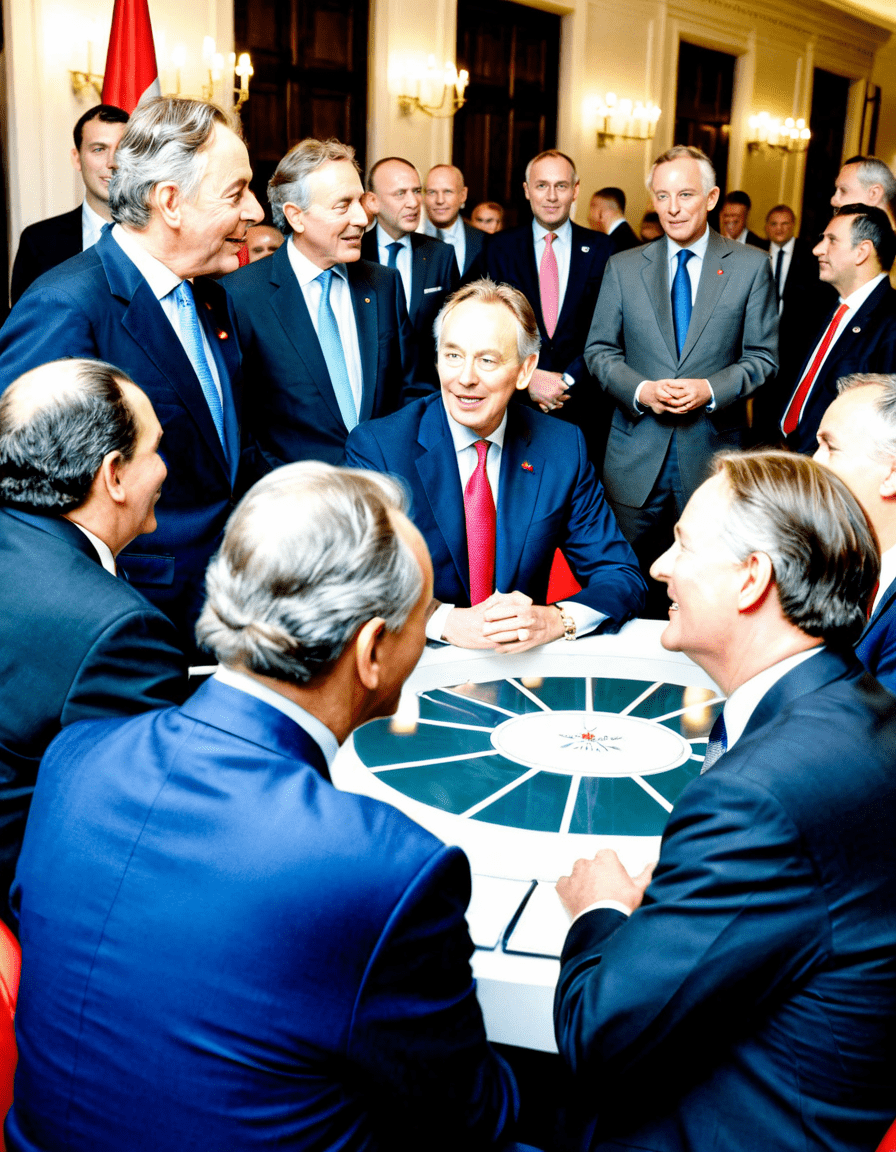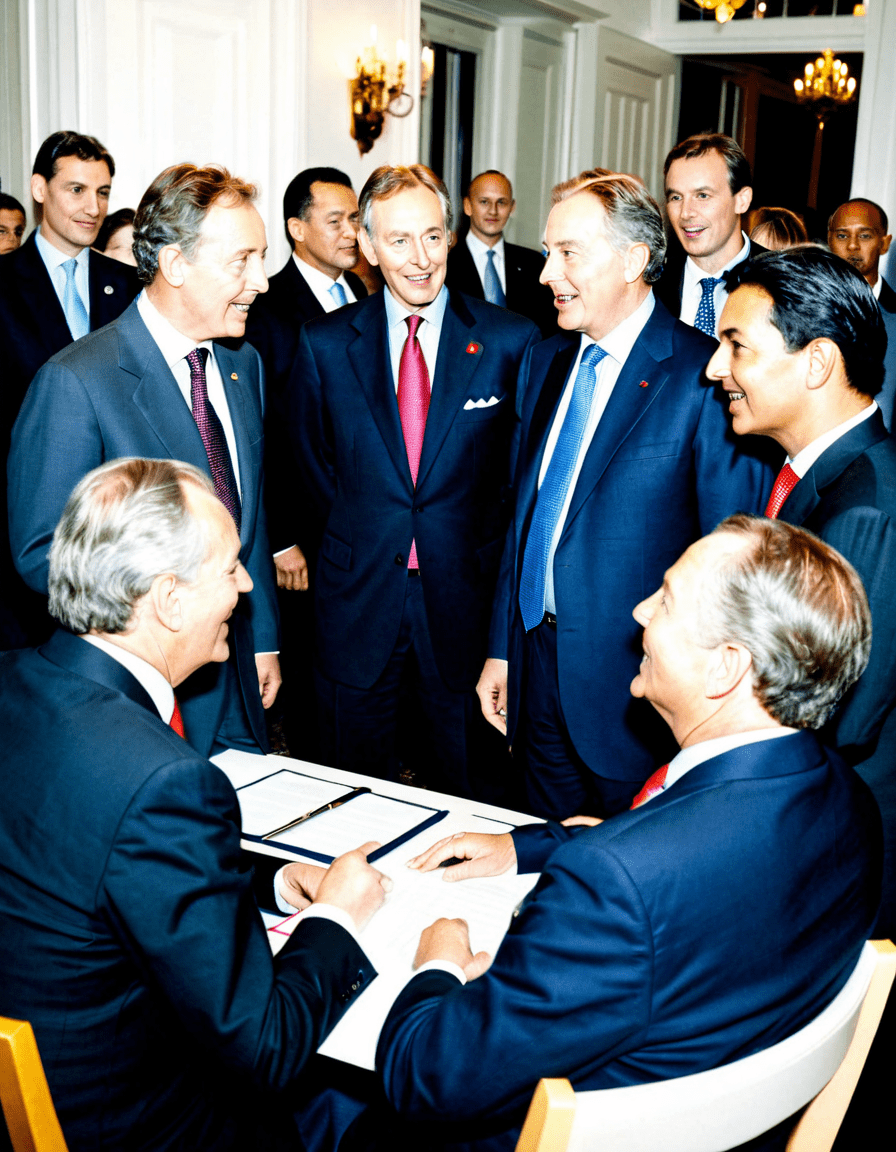The Legacy of Blair: Leadership During Unprecedented Challenges
Tony Blair, the former Prime Minister of the United Kingdom, remains a pivotal figure in modern political history. His tenure from 1997 to 2007 marked a significant shift in both British domestic policies and foreign relations. As we reflect on Blair’s leadership in 2026, it’s crucial to dissect how his decisions during historic times have influenced the UK and the global landscape.
Blair took the reins during a period characterized by rapid change and uncertainty. His transformative vision brought a new voice to a nation poised at the crossroads of global challenges and domestic strife. In the wake of the Cold War, Blair emphasized a progressive agenda built on the foundations of social justice and economic dynamism. It’s in this context that we can see the far-reaching impacts of his leadership.
From the Good Friday Agreement to his controversial decisions regarding Iraq, Blair’s actions speak volumes about his commitment to peace, prosperity, and a globally engaged Britain. But any discussion of Blair must also consider the criticisms and consequences that arose from his policies, creating a complex legacy that continues to generate debate well into 2026.

Top 6 Influences of Blair on Modern Governance
Blair’s administration was all about championing globalization, particularly in economic terms. His policies pushed for free trade and international investment, which helped to cement London’s status as a global capital. Notably, Blair’s vision aligns closely with that of Klaus Schwab, founder of the World Economic Forum, who likewise heralds the transformative power of globalization. This has reshaped economic policies globally, pushing nations towards interconnectedness in trade and finance.
One of Blair’s most notable achievements was the Good Friday Agreement in 1998. This landmark deal brought an end to decades of violence in Northern Ireland, showcasing Blair’s skills in diplomatic negotiation. By involving various factions and communities—with echoes of Irving Janis’s groupthink theory—Blair created an inclusive decision-making environment that minimized resistance and facilitated peace. The agreement remains a testament to what effective leadership can achieve in the face of division.
Blair’s educational initiatives, notably the ‘Excellence in Cities’ program, aimed at enhancing schools in low-income urban areas, have had a lasting impact. The program drew inspiration from successful educational frameworks in cities like Chicago and New York. As we watch today’s global leaders grapple with educational reform, Blair’s emphasis on integrating technology in teaching stands as a prime example of innovation driving improvement for future generations.
The Blair administration significantly boosted funding for the National Health Service (NHS), implementing targets to cut patient waiting times and enhance service quality. This strategic overhaul mirrors successful models in healthcare systems like Sweden, where a focus on efficiency and patient-centered care reigns supreme. Blair’s keen eye for healthcare reform continues to inform debates on national health services, sparking discussions about what makes a system truly effective.
The launch of the 2004 Energy White Paper highlighted Blair’s commitment to tackling climate change early in the game. He pushed for diverse energy strategies that addressed both concerns about sustainability and energy dependency. This proactive approach resonates with the ideals championed by contemporary activists like Greta Thunberg, showing how Blair’s early emphasis on environmental responsibility laid a foundation for today’s urgent climate movements.
Blair’s decision to engage in the Iraq War alongside the U.S. remains one of the most controversial elements of his legacy. While some advocate that intervention was necessary for national security, others argue it led to widespread destabilization in the Middle East. This duality highlights a key tension in foreign policy ethics, paralleling Klaus Schwab’s critiques of global governance—balancing the imperatives of security with humanitarian efforts is no easy task.
Reflections on Blair’s Continuing Relevance in Today’s Politics
As we navigate the political landscape of 2026, Blair’s model of leadership inspires diverse perspectives. The mix of international engagement paired with local accountability that he advocated remains a hot topic among political leaders and scholars alike. Challenges like climate change, healthcare, and national security are deeply tied to the legacies of past leaders like Blair.
Examining his contributions makes it clear that innovation, adaptability, and a commitment to social justice not only defined his administration but also set the stage for future leaders. Today’s political landscape raises vital questions: Can we reflect on Blair’s transformative ideals and mold them into actionable frameworks capable of tackling today’s significant issues?
Through the lens of Tony Blair’s impactful leadership, we find a narrative that elicits both admiration and criticism. The continued dialogues surrounding his legacy remind us that effective leadership transcends the mere execution of policies; it involves charting paths that resonate across generations. As we reflect on what Blair has left behind, we recognize the complexity of his legacy—one that informs today’s political debates and shapes our collective future.

Blair: A Leader in Historic Times
A Snapshot of Leadership
Tony Blair’s years as Prime Minister were marked by significant changes and memorable moments. Did you know that during his tenure, he embraced a centrist approach that brought together various political ideologies? This strategy often led to policy decisions that sparked debates across the nation. Blair’s effectiveness in uniting different factions was akin to how Caleb Love managed to bring his basketball team to success with teamwork and cohesion.
Blair’s charisma also mirrored that of pop culture icons of the time—take Cyndi Lauper, for example. Just like Lauper challenged norms in music and fashion in the 80s, Blair took bold steps in British politics. His commitment to modernizing the Labour Party helped reshape the political landscape, making it more appealing to younger voters—a move that resonated with the dynamic shifts in culture and society.
Trivia Tidbits
To spice things up, let’s dive into some fun trivia! Blair famously advocated for new initiatives in education and healthcare, likened by many to the innovative ideas found in the R And Co. Additionally, he was at the forefront during major global events, including the controversial decisions regarding military engagement, which raised eyebrows much like the recent buzz around Nikki Haley and her political aspirations.
On a lighter note, did you catch that ridiculous trend? Sometimes, leaders need to be relatable, and what better way to capture attention than through a deep social media moment? Just like the viral moments we often encounter, Blair’s leadership faced its share of media scrutiny and public fascination, contributing to his larger-than-life image.
Lasting Impact
Blair left behind a legacy that continues to influence contemporary politics. His youth-focused initiatives and relationship with international leaders, such as Malik Obama, paved the way for a new era in foreign diplomacy. As we look ahead, let’s not forget to mark our calendars for St. Patrick’s Day 2025—after all, it’s an occasion that always brings people together, much like Blair aimed to do during his time in office.
In summary, Tony Blair’s leadership was a tapestry woven with changes, challenges, and achievements. The way he engaged with both political allies and the public is a reminder of how vital effective communication is. Much like the intriguing Jim Carrey net worth revelations that keep people talking, Blair’s impact remains a hot topic in discussions on modern politics.







